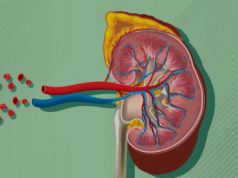There are several ideas about metabolism, digestion, and circadian rhythms that are connected to the belief that eating should not occur between 4 and 6 p.m.
Our bodies follow a natural circadian rhythm, which influences various physiological processes, including metabolism and digestion. Eating late in the afternoon or early evening can disrupt these rhythms. Some studies suggest that our metabolism starts to slow down later in the day, so eating during this period might lead to poorer digestion and increased fat storage.
Insulin sensitivity tends to be higher earlier in the day and decreases as the day progresses. Eating later in the day, particularly in the late afternoon, might lead to higher blood sugar levels and a greater insulin response, which can negatively impact metabolic health.

Eating late in the day, particularly foods high in sugar or fat, can interfere with digestion and sleep. It can lead to discomfort or indigestion, making it harder to get a good night’s sleep. Poor sleep can further disrupt circadian rhythms and metabolism, creating a vicious cycle.
Some proponents of intermittent fasting suggest specific eating windows that typically avoid late afternoon and early evening meals. For instance, an eating window from 8 a.m. to 4 p.m. allows the body to fast and reset during the evening and night, potentially improving metabolic health and weight management.
Behavioral Factors: For some people, eating between 4 and 6 p.m. might lead to unhealthy snacking or overeating. This time period is often when people are getting home from work or school and might reach for convenient, less nutritious snacks. Avoiding this time window can help establish more structured meal times and healthier eating habits.









